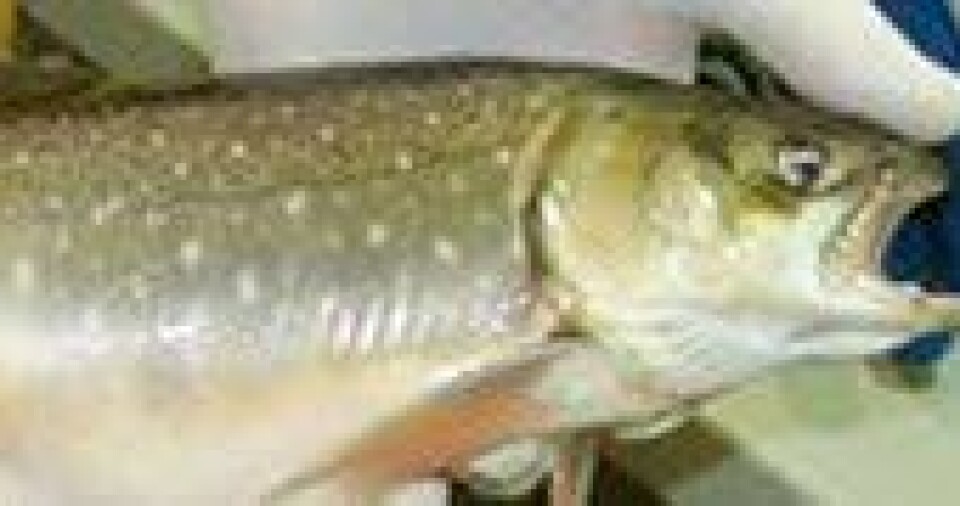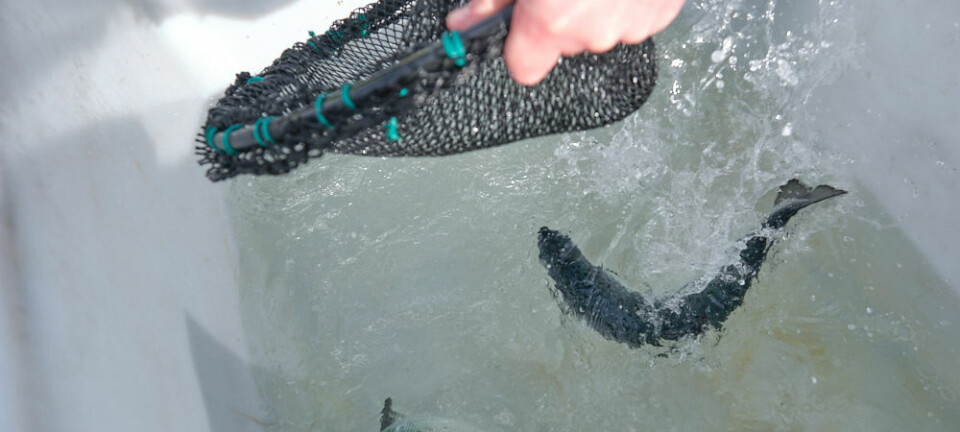
Another Hutterite Colony attempts closed containment fish farming
If there ever was a salmonid species that might prove profitable to produce in a land-based tank farm using a Recirculating Aquaculture System (RAS), it might well be the Arctic char. The fish has been shown to tolerate densities in captivity that approach 200 Kg/m3- more than eight times the upper limit used by most producers of Atlantic salmon in conventional ocean-based net pens. In the Yukon Territory near Whitehorse, the Icy Waters Ltd. company has been growing the fish since 1985, with the financial results boosted by the supply of clean, gravity-fed rearing water that drastically reduces pumping costs.
And as Global News National Manitoba Correspondent Crystal Goomansingh reported this week from Winnipeg, there is now another Canadian company producing farmed Arctic char, although in a much smaller scale and far from the natural habitats of the species;
The Prairies are often called Canada’s bread basket, but many farmers have come to diversify their crops beyond wheat in recent years. Fish, however, is not the first product that comes to mind when you think of a Manitoba farm. In a barn that used to house hogs, Peter Waldner now raises Arctic char — a popular fish on restaurant dinner plates across North America and Europe.
There are a handful of Arctic char farms across Canada, but his operation — on the Ridgeland Hutterite Colony, near the community of Anola — is the only one on the Prairies. “We’ve come a long way and I have to admit we are proud of how it’s working,” Waldner told Global News.
It’s not been without obstacles.
“With us it’s been pretty challenging because there’s nobody really around that we can ask that’s doing char,” Waldner said. It’s an all-in-one operation. Everything from spawning to processing is done right on site. The species generally lives in Arctic and sub-Arctic waters. Luckily, the farm sits on top of an aquifer, 76 metres below, which is the key to making the perfect cold-water conditions to raise char. Waldner started Ridgeland Aqua Farm with his cousin, Mark, seven years ago as a means to make use of the unused barn. It started with a small trial, using rainbow trout. When that worked, they gave Arctic char a whirl.
Now they’re filleting about 500 fish every week, selling them to a wholesaler and a couple of restaurants. Scot McTaggart’s Fusion Grill is one of them. “I was a little hesitant, just a little bit. I am a real big fish fan. I love fresh, beautiful, gorgeous fish,” he said. He said he put the Ridgeland Arctic char up against some fresh Arctic char from the Nelson River. “[I] prepared both the same way and tried it and was absolutely delighted and surprised to find that it was clean, beautiful, earthy, sweet,” he said. “And local, 45 minutes from the restaurant.”
The Waldners are also selling some fish by word of mouth. But Peter Waldner said he’s hoping they’ll have more businesses knocking on their door in the future. “It would be nice if more restaurants did sell our char because they have the benefit to. It’s local, it’s fresh and it’s one of the best fish out there,” he said.






















































